Speaker Biographies
Hilda Anderson-Pyrz
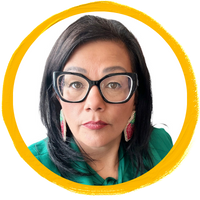
Originating from South Indian Lake, Manitoba, and proudly associated with the Nisichawayasihk Cree Nation, Hilda Anderson-Pyrz stands as a symbol of resilience and relentless advocacy. As the current Chair/President of the National Family and Survivors Circle in Canada, Hilda has dedicated over two decades to the vital cause of eradicating gender- and race-based violence against Indigenous women, girls, and 2SLGBTQQIA+ individuals.
Her journey is marked by an unwavering commitment to uplifting Indigenous communities through strength-based and community-oriented approaches. Hilda's leadership transcends conventional boundaries, seamlessly integrating Indigenous knowledge and practices into effective strategies for awareness, service delivery, and solution formulation.
A testament to her impactful leadership, Hilda held the esteemed positions of President at the Families First Foundation and Co-Chair of the Manitoba MMIWG Coalition. Her efforts in these roles further solidified her status as a leading figure in the fight against gender-based violence.
Hilda's exceptional work has not gone unnoticed. She is a recipient of several prestigious awards, including the 2019 RESOLVE Manitoba Community Award, the Manitoba Honour 150 Award in February 2021, and the 2022 Empower Women Award. These accolades stand as a testament to her tireless dedication and significant contributions to social justice and advocacy.
At the heart of her mission lies a deep-seated commitment to advocating for Indigenous-led solutions on regional, national, and international platforms. Hilda's approach is unique in its blend of decolonizing strategies, Indigenous wisdom, human rights principles, and self-determination. Her vision and actions continue to inspire and pave the way for a world where equality and justice are not just ideals, but realities.
Pam Atkinson
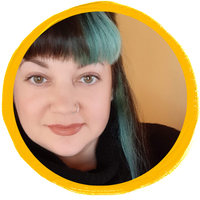 Pam Atkinson (she/her) lives on the unceded Mi’kmaq territory of Epekwitk (Prince Edward Island) with her wonderful partner, Keith, and two hilarious and kind-hearted young children, Jasper and Elliott. Her educational background is in Community Studies and Social Work and she has been a Project Coordinator at Women’s Network PEI (WNPEI) for the past decade. During this time she has led several important projects that have helped to build protective factors in girls and gender diverse youth, helped boys and men explore the meaning of healthy masculinities, strengthened resilience in Indigenous youth through connecting with community, and has also empowered youth across the province to think critically about healthy relationships and messaging in the media. In those 10 years at WNPEI, Pam has additionally helped to lead local employers to create more supportive workplaces through an intersectional feminist lens and has advocated for the government to increase wages for childcare workers and make quality, affordable childcare more accessible. More recently, she has facilitated “Trade HERizons” which encourages women to explore male dominated trades as a way towards economic sustainability and is currently the coordinator for “Pathways To Thrive”, a project that exists to explore healing modalities and provide trauma-informed, strength-based, intersectional feminist, anti-oppressive, and decolonial healing opportunities for BIPOC, 2SLGBTQ+ and rural survivors of gender-based violence.
Pam Atkinson (she/her) lives on the unceded Mi’kmaq territory of Epekwitk (Prince Edward Island) with her wonderful partner, Keith, and two hilarious and kind-hearted young children, Jasper and Elliott. Her educational background is in Community Studies and Social Work and she has been a Project Coordinator at Women’s Network PEI (WNPEI) for the past decade. During this time she has led several important projects that have helped to build protective factors in girls and gender diverse youth, helped boys and men explore the meaning of healthy masculinities, strengthened resilience in Indigenous youth through connecting with community, and has also empowered youth across the province to think critically about healthy relationships and messaging in the media. In those 10 years at WNPEI, Pam has additionally helped to lead local employers to create more supportive workplaces through an intersectional feminist lens and has advocated for the government to increase wages for childcare workers and make quality, affordable childcare more accessible. More recently, she has facilitated “Trade HERizons” which encourages women to explore male dominated trades as a way towards economic sustainability and is currently the coordinator for “Pathways To Thrive”, a project that exists to explore healing modalities and provide trauma-informed, strength-based, intersectional feminist, anti-oppressive, and decolonial healing opportunities for BIPOC, 2SLGBTQ+ and rural survivors of gender-based violence.
Rhonelle Bruder
 Rhonelle Bruder is a dedicated activist and scholar with a profound commitment to addressing the complex issues of human trafficking and gender-based violence. Currently serving as a Teaching Fellow at Harvard University’s Department of Sociology and pursuing a Ph.D. in Social and Behavioral Health Sciences at the University of Toronto's Dalla Lana School of Public Health, Rhonelle's research focuses on the health and well-being of formally sex-trafficked women. With over a decade of experience in healthcare and social services, Rhonelle's work has consistently been community-centered and survivor-driven.
Rhonelle Bruder is a dedicated activist and scholar with a profound commitment to addressing the complex issues of human trafficking and gender-based violence. Currently serving as a Teaching Fellow at Harvard University’s Department of Sociology and pursuing a Ph.D. in Social and Behavioral Health Sciences at the University of Toronto's Dalla Lana School of Public Health, Rhonelle's research focuses on the health and well-being of formally sex-trafficked women. With over a decade of experience in healthcare and social services, Rhonelle's work has consistently been community-centered and survivor-driven.
Notably, she founded and served as the Executive Director of Project iRISE. This community-based anti-trafficking organization provided vital support to women affected by sex trafficking, including branding tattoo removal, vocational skills building, and mutual support. Rhonelle also actively contributes to the field through her role on the Board of Directors at HEAL Trafficking. In addition to her research and advocacy, she is a sought-after speaker, trainer, consultant, and lecturer on a range of critical topics, including human trafficking, gender-based violence, intersectionality, and social justice strategies.
Esther Fagbola
 Esther Fagbola (she/her) has been a community builder in Ottawa since she had experiences with intimate partner violence at the age of 19. She has had a growing passion for social justice and survivor advocacy particularly for racialized communities. Esther has extensive experience facilitating community conversations surrounding gender-based violence, sexual health, drug education, harm reduction, and survivor advocacy. Esther is the founder and current Executive Director at Project Agape, a Black survivor-led organization that supports Black women and gender-diverse people who have experienced violence and oppression.
Esther Fagbola (she/her) has been a community builder in Ottawa since she had experiences with intimate partner violence at the age of 19. She has had a growing passion for social justice and survivor advocacy particularly for racialized communities. Esther has extensive experience facilitating community conversations surrounding gender-based violence, sexual health, drug education, harm reduction, and survivor advocacy. Esther is the founder and current Executive Director at Project Agape, a Black survivor-led organization that supports Black women and gender-diverse people who have experienced violence and oppression.
Esther believes in education that is built on an intersectional lens, is trauma-informed, meets community members where they are, and encourages collective growth and learning. She believes that we are all producers of knowledge as much as we are receivers, particularly in situations where we have lived experiences, our voices matter in the work being done and stories being told.
Jess Fisher

Jess Fisher (she/they) is a queer, Two Spirit, Métis and French/Irish/Scottish/German settler woman who was born and raised on Treaty 6 Territory and Homeland of the Métis Nation. As the Gender Based Violence Education Coordinator at OUTSaskatoon, they provide education, training, and consultation to service providers about ways to provide safer, more affirming care to 2SLGBTQ people. She is dedicated to helping build safer spaces so that everyone in the circle is celebrated and supported in being who they are.
Angela Marie MacDougall
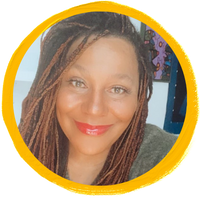 Through her community-based organizing, frontline work, curricula development, training, and activism over three decades, Angela Marie MacDougall (she/her) has been deeply involved in movements for gender, racial, and social justice. Angela’s impact includes the development of empowerment and advocacy-based program and service delivery models that address gender-based violence and violence against women that are grounded in strong theoretical frameworks that include intersectional feminist trauma and violence-informed analysis. She has organized around law reform and community-based research toward building lasting social change. She is co-writer of Freedom from Violence: Tools for Working with Trauma, Mental Health and Substance Use; Empowering Non-Status, Refugee, and Immigrant Women Who Experience Violence; Implementation of a National Action Plan on GBV and VAW: Supports for Survivors and their Families; Colour of Violence: Gender, Race and Anti-Violence Services and blogs at bwss.org/endingviolence.
Through her community-based organizing, frontline work, curricula development, training, and activism over three decades, Angela Marie MacDougall (she/her) has been deeply involved in movements for gender, racial, and social justice. Angela’s impact includes the development of empowerment and advocacy-based program and service delivery models that address gender-based violence and violence against women that are grounded in strong theoretical frameworks that include intersectional feminist trauma and violence-informed analysis. She has organized around law reform and community-based research toward building lasting social change. She is co-writer of Freedom from Violence: Tools for Working with Trauma, Mental Health and Substance Use; Empowering Non-Status, Refugee, and Immigrant Women Who Experience Violence; Implementation of a National Action Plan on GBV and VAW: Supports for Survivors and their Families; Colour of Violence: Gender, Race and Anti-Violence Services and blogs at bwss.org/endingviolence.
Angela is an expert panelist at Canadian Femicide Observatory for Justice and Accountability, a founding member of Feminists Deliver, a long-standing member of Vancouver’s February 14th Women’s Memorial March and is a founding member of Intersectional Feminist Justice Research and Organizing Collaborative. Angela was named a Remarkable Woman by the City of Vancouver and Vancouver Magazine named her one of Vancouver’s most powerful people. Angela is currently the executive director of Battered Women’s Support Services.
Nneka MacGregor
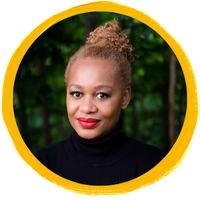 Nneka MacGregor is a co-founder and Executive Director of the Women’s Centre for Social Justice, better known as WomenatthecentrE, a unique non-profit organisation created by/for women, trans, and gender-diverse survivors of gender-based violence (GBV). A Black Intersectional abolitionist feminist, international speaker, and Transformative Justice practitioner, Nneka is an expert advisory panel member of the Canadian Femicide Observatory for Justice and Accountability and sits on several Boards and committees, including the Federal Advisory Council on the Federal Strategy Against GBV. She co-founded the Black Femicide Canada Council, and her research focuses on sexual violence and the intersection of strangulation, Traumatic Brain Injury, and GBV. She received the 2019 PINK Concussions Award and the 2020 YWCA Women of Distinction Social Justice Award. She was recently appointed the Activist in Residence (AiR) at the University of Guelph, in Ontario, Canada.
Nneka MacGregor is a co-founder and Executive Director of the Women’s Centre for Social Justice, better known as WomenatthecentrE, a unique non-profit organisation created by/for women, trans, and gender-diverse survivors of gender-based violence (GBV). A Black Intersectional abolitionist feminist, international speaker, and Transformative Justice practitioner, Nneka is an expert advisory panel member of the Canadian Femicide Observatory for Justice and Accountability and sits on several Boards and committees, including the Federal Advisory Council on the Federal Strategy Against GBV. She co-founded the Black Femicide Canada Council, and her research focuses on sexual violence and the intersection of strangulation, Traumatic Brain Injury, and GBV. She received the 2019 PINK Concussions Award and the 2020 YWCA Women of Distinction Social Justice Award. She was recently appointed the Activist in Residence (AiR) at the University of Guelph, in Ontario, Canada.
Kendra J. McLaughlin
 Kendra J. McLaughlin, Ph.D., is a researcher, project manager, and advocate dedicated to disability justice and equitable access to care. With a Ph.D. in Legal Psychology from Carleton University, her academic journey explores the intersections of law, psychology, and social equity.
Kendra J. McLaughlin, Ph.D., is a researcher, project manager, and advocate dedicated to disability justice and equitable access to care. With a Ph.D. in Legal Psychology from Carleton University, her academic journey explores the intersections of law, psychology, and social equity.
As a white disabled woman who grew up in rural New Brunswick, Kendra works to bring an inclusive perspective to her work, spanning sociomedical sciences, healthcare attitudes, and social determinants of health. Her expertise is grounded in disability justice and feminist critical criminology frameworks.
Beyond her scholarly achievements, Kendra is a devoted advocate, drawing inspiration from personal experiences with mental health disabilities. She actively works to destigmatize mental health issues and improve access to care, demonstrating a commitment to inclusivity.
In addition to her academic role, Kendra teaches a seminar course titled "Criminology of Mental Illness" at Carleton University and has published articles on disability justice in Briarpatch Magazine and her Instagram blog, @criminalizedmentallyill. She enjoys painting, indoor cycling, reading, and trying new coffees.
At DAWN Canada, Kendra guides research initiatives to understand and foster resilient peer support networks for disabled women, girls, and gender-diverse survivors/victims of gender-based violence across Canada.
Doris Rajan
 Doris Rajan (she/her/elle) has worked for over 20 years as a senior consultant in the non-profit sector, with a focus on gender-based violence, access to justice, the experience of racialization, refugee, immigrant and Indigenous issues and disability justice. Doris is the Director of Operations & Social Development at IRIS, the Institute for Research and Development on Inclusion and Society.
Doris Rajan (she/her/elle) has worked for over 20 years as a senior consultant in the non-profit sector, with a focus on gender-based violence, access to justice, the experience of racialization, refugee, immigrant and Indigenous issues and disability justice. Doris is the Director of Operations & Social Development at IRIS, the Institute for Research and Development on Inclusion and Society.
In her work, Doris has designed numerous international, national, and regional community-based social development and applied research projects and has authored several research reports and community-designed training resources. Doris has a master’s degree in social work with a specialization in Social Policy and Research, and holds a PhD in Adult Education and Community Development from the University of Toronto, where her research involved the development of a curriculum framework for a critical feminist/anti-oppression pedagogy of solidarity with racialized, Indigenous, and women-identified people with disabilities to challenge structural violence.
Doris is also a theatre and film artist and was commissioned to write a play for the Truth, Reconciliation & Engagement symposium, entitled A Tender Path, where excerpts were performed and filmed at the Canadian Museum of Human Rights in November 2021. She has served as the producer for a collaborative multi-disciplinary performance arts show entitled: Dialogues on the Edge performed by Indigenous, Black, racialized, Black Deaf, refugee, and disability artists at the Canadian Museum of Human Rights (2023) and the Imperial Theatre in Saint John New Brunswick (2023).
Berivan Kutlay Sarikaya
 Dr. Berivan Kutlay Sarikaya is a Kurdish anti-abolition feminist scholar/activist. She earned her doctoral degree from the Adult Education and Community Development Program at the Ontario Institute for Studies in Education (OISE) of the University of Toronto. She works as a Project Coordinator in the Initiative to End the Gender-Based Violence Program at OCASI - Ontario Council of Agencies Serving Immigrants. She has diverse professional and scholarly work in the human rights field related to survivors of state violence and refugee women who are gender-based violence survivors in Turkey, Europe and Canada.
Dr. Berivan Kutlay Sarikaya is a Kurdish anti-abolition feminist scholar/activist. She earned her doctoral degree from the Adult Education and Community Development Program at the Ontario Institute for Studies in Education (OISE) of the University of Toronto. She works as a Project Coordinator in the Initiative to End the Gender-Based Violence Program at OCASI - Ontario Council of Agencies Serving Immigrants. She has diverse professional and scholarly work in the human rights field related to survivors of state violence and refugee women who are gender-based violence survivors in Turkey, Europe and Canada.
Moderator Biographies
Esther Enyolu
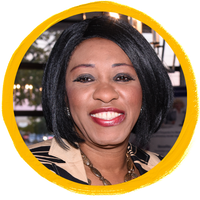
Esther Enyolu has been working in the human service field for over 30 years. She is a great advocate and leader on issues of gender-based violence and economic empowerment of women for financial sustainability and security. As the Executive Director of Women's Multicultural Resource and Counselling Centre (WMRCC) of Durham, she continues to develop numerous innovative programs and services to support the population the organization serves. She has been an advisory member of the Learning Network since its’ inception in 2009. She is a member of the ROSCA Network and a Co-Author of a book: Speak Out and Help Her Recover: Stories of Hope and Healing for Survivors of Gender Based Violence. Also Co-Author of a training manual: Creating Inclusive Spaces for Women: Implementing an Integrated, Anti-Racist, Feminist Service Delivery System, a training manual for OAITH member agencies.
Laura Hartley
 Laura is a queer, feminist, facilitator, ceremonialist, community builder, and mom based in Tkaronto. Laura is the Program Director at METRAC: Action on Violence.
Laura is a queer, feminist, facilitator, ceremonialist, community builder, and mom based in Tkaronto. Laura is the Program Director at METRAC: Action on Violence.
She is also a feminist self-defence instructor and has been actively working within organizations and through grassroots community building to challenge gender-based violence and make positive social change for over 15 years.
Marie-Pascale Lafrenière
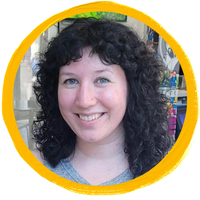 Marie-Pascale Lafrenière (she/her) is a francophone feminist activist based on the traditional unceded territory of the Anishinaabe Algonquin People. Since 2022, she has been working for Action ontarienne contre la violence faite aux femmes, a provincial organization working to end gender-based violence, where she currently serves as community development manager. Marie-Pascale holds a certificate in project management from the University of British Columbia and an MFA from Emily Carr University, where she focused her research on the representation of feminine bodies.
Marie-Pascale Lafrenière (she/her) is a francophone feminist activist based on the traditional unceded territory of the Anishinaabe Algonquin People. Since 2022, she has been working for Action ontarienne contre la violence faite aux femmes, a provincial organization working to end gender-based violence, where she currently serves as community development manager. Marie-Pascale holds a certificate in project management from the University of British Columbia and an MFA from Emily Carr University, where she focused her research on the representation of feminine bodies.
Amber Wardell
 Amber Wardell is the Learning & Development Coordinator for the Ontario Association of Interval and Transition Houses (OAITH). Amber is a member of the Learning Network Provincial Advisory representing OAITH. OAITH is a coalition of first stage emergency women's shelters, 2nd stage housing organizations and community-based women organizations who work towards ending violence against all women. Amber has worked for over 15 years as a community educator, coordinator, social justice advocate and counsellor for survivors of gender-based violence and youth in rural communities.
Amber Wardell is the Learning & Development Coordinator for the Ontario Association of Interval and Transition Houses (OAITH). Amber is a member of the Learning Network Provincial Advisory representing OAITH. OAITH is a coalition of first stage emergency women's shelters, 2nd stage housing organizations and community-based women organizations who work towards ending violence against all women. Amber has worked for over 15 years as a community educator, coordinator, social justice advocate and counsellor for survivors of gender-based violence and youth in rural communities.
All our resources are open-access and can be shared (e.g., linked, downloaded and sent) or cited with credit. If you would like to adapt and/or edit, translate, or embed/upload our content on your website/training materials (e.g., Webinar video), please email us at gbvln@uwo.ca so that we can work together to do so.






